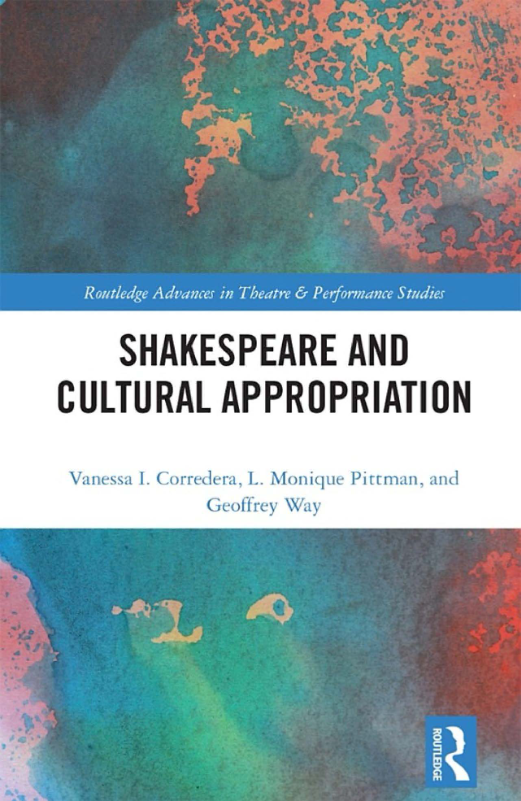Remedial Uses of Shakespeare
Shakespeare and Cultural Appropriation, ed. Vanessa I. Corredera, L. Monique Pittman, Geoffrey Way (Routledge, 2023), pp. 222-233 ::: ISBN 9781032303086 ::: DOI: 10.4324/9781003304456-15
This chapter, coauthored by Alexa Alice Joubin and Elizabeth Rivlin, argues that cultural appropriation can be an exploitative act but need not be; it all depends on what users do with Shakespeare. Due to the unequal status of the parties engaged in appropriative exchange, some appropriations deploy Shakespeare to protect conventional power structures.
Appropriations are rarely negotiated on a level playing field, especially when it comes to Shakespeare, because of the canon’s long history of association with cultural elites and prestige. Cultural appropriation can also have subversive and counter-hegemonic effects.
Marginalized agents have the power to expose and correct power imbalances. In other words, we addresses a wide range of intercultural and global appropriations of Shakespeare. Our study also complicates any simple definition of how cultural appropriation works and what ethical effects it might produce.
Not only does “remedial” have diverging definitions, but it is also proximate to “remediation,” in the sense given it by Jay David Bolter and Richard Grusin, namely, “the representation of one medium in another.” If we conjoin this definition to acts of remedying or correcting, the implication is that such acts occur in-and as a result of-the process of media transformation.
It is important to teach cultural appropriation, because in studying how authors, theater directors, and filmmakers appropriate Shakespeare to meet varied cultural priorities, students come to recognize themselves as potential agents of appropriation, with attendant power and responsibility.
